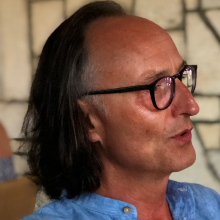With the newly created professorship, TU Wien Informatics invites highly renowned scientists to research and teach together with its students and scientists. This high-level exchange ensures excellence in science and lively collaboration with our professors’ universities. Kurt Gödel Visiting Professors are appointed for three years. They are teaching and pursuing research with students and scientists at TU Wien Informatics.
Frank Leymann, born in Bochum in 1957, studied Mathematics, Physics, and Astronomy at the University of Bochum, Germany. After receiving his master degree in 1982, he pursued his PhD in Mathematics in 1984. Afterwards, he joined IBM Research and Development and worked for two decades for the IBM Software Group, building database and middleware products such as tools supporting conceptual and physical database design for DB2.
In 2004, Frank Leymann was appointed full professor of computer science at the University of Stuttgart, where he founded the Institute of Architecture of Application Systems and is director of the same. His research interests comprise service-oriented computing and middleware, workflow- and business process management, pattern languages, cloud computing, transaction processing, integration technology, and quantum computing. Frank Leymann is also Principal Investigator at the Cluster of Excellence EXC 2075 in "Data-Integrated Simulation Science" and is prject leader of the project PN 7-4 "Provisioning Languages and Distributions for Requirement-Aware Simulations".
Mr Leymann is an elected member of the Academy of Europe (Academia Europaea). He published uncountable papers in journals and proceedings, co-authored four textbooks, and holds close to 60 patents, especially in the area of workflow management and transaction processing. He served on program and organization committees of many international conferences, and is (associated) editor of several journals.
From 2006 to 2011, he was a member of the scientific directorate of Schloss Dagstuhl—Leibniz Center of Computer Science. In 2019, he was accepted as a Fellow at the Center of Integrated Quantum Science and Technology (IQST).


